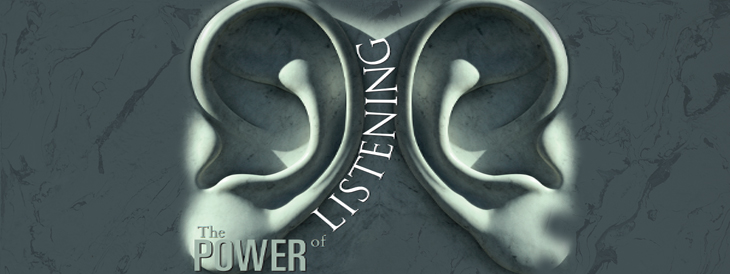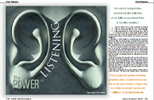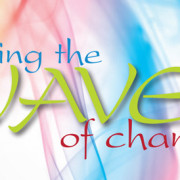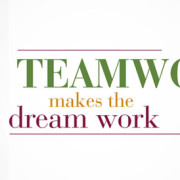The Power of Listening
How much of an impact does our communication really have on our ability to succeed and thrive in the field of dentistry?
Across the board there is virtual agreement by opinion leaders in business development that “communication” is the core competency that can turn a group of highly skilled individuals into a high-performing team. Results in dentistry are built on many small coordinated team activities that when collectively applied begin to have a significant combined impact on your patients, your profits and on your fulfillment.
Ultimately it is only through our communication and connection with others that we can truly function at this higher level of business success. The silent but mistaken belief many in society hold is that the best communicators are the best talkers. Is this really true or is there something more to mastering this somewhat elusive talent?
Let’s take a moment to ponder two things… First: “How effective can we really be at inspiring patient interest in the fullest scope of our services unless they feel completely heard and understood in our presence?” Second: “How effective can we be as a dental team if individual team members, during their day-to-day interaction with one another, are primarily focused on being heard and no one really listens?”
Here is my premise… that no matter what you do or who you are, the quality of your life is determined more than any other factor by the quality of your relationships (at work/at home/with patients). Low quality relationships, low quality of life… high quality relationships, high quality of life. The quality of your relationships is determined by your ability to communicate. There is one skill, one talent that will make the most immediate and positive difference in your communication excellence.
This talent is like gravity, it’s so core to human existence that we rarely think about. This talent is like telephone poles… something so apparent that we rarely stop to notice it. This talent is so important that it could transform your business and personal life. Many people have personally shared with me that this talent helped them strengthen workplace unity and relationships, increased their sales or helped them to become better leaders. This talent, this skill is the missing link in communication and it’s called “LISTENING.” If you take the letters in the word “LISTENING” and rearrange them you get the word “SILENT.” Listening is the silent skill that enhances communication effectiveness.
Throughout my personal and professional life I’ve experienced or witnessed many conversations where people were talking without the benefits of real communication occurring. Yet in many cases neither party seemed to recognize that a failure to connect had actually occurred, or where the failure originated! The problem, I believe, is rooted in our deepest psychological consciousness. There is a little voice inside each of our heads that is usually talking louder than the person we are speaking with. If you’re thinking “WHAT VOICE?”… that’s the voice… the little voice in your head that’s constantly talking to you, the one that decides to judge, evaluate, agree or disagree with what the other person is saying. Our internal voice is usually more focused on advancing our own agenda than on understanding the agenda of the person we are speaking with. In his best-selling book 7 Habits of Highly Effective People, Steven Covey makes this suggestion… “seek first to understand, then to be understood!”
I have come to realize that there is a big difference between a conversation and communication. That difference is rooted in our ability to listen. One day after work a client of mine had a heated and lengthy conversation with a valued employee after which she quit her job. Her reason for leaving as expressed to her co-workers was “he didn’t understand me; he just didn’t listen to me.” “How could this be?” thought the puzzled owner … “we spoke for almost two hours.” Lesser versions of this scenario play out daily in the dental office. It happens because talking has very little to do with effective communication. Talking is a “conversation” which is merely an exchange of words … that’s it! “Communication” on the other hand can be seen as more of an exchange of understanding, desires or viewpoints. This means that for effective, high-level communication to occur, both parties must have their receiving stations on. The only way to do this is by listening more and talking less. Simply put, a conversation is “sending focused” while communication tends to be more “receiving focused.”
By the way, when I refer to listening, I don’t mean hearing (auditory sounds in the ear). Hearing and listening are two totally different subjects. Steve Shapiro in his book “Listening for Success” explains it like this… “Have you ever said to someone, ‘You’re not listening to me!’ and they say, ‘Yes I am. I can repeat everything you just said’ and they do — but you still know they haven’t listened. Listening is not the same as hearing because you can actually hear someone without understanding the content of their message or the intended meaning behind their words.”
Hearing occurs with your ears… listening occurs with your mind, your heart and your spirit.
Hearing is a physical process… listening is a mental, emotional and spiritual process.
Hearing is easy… audible sound… listening takes effort.
Hearing is involuntary… listening is a choice.
Hearing is one of your senses… listening is one of your human capacities.
You can hear someone without listening…
To hear you do not have to care… but to listen you must care.
My four-year-old son recently explained this concept to me in layman’s terms. I asked him why he didn’t listen to his kindergarten teacher when she told him to stop running in class. His explanation in a humbled guilty voice was… “I heard her daddy, I just didn’t listen.” In adult terms what he meant was that he in fact physiologically heard her but consciously paid little attention to the intended meaning behind her words. In the workplace, how often do we miss valuable opportunities to fully listen to our customers and co-workers?
Listening is a precious gift. You should give it to each other and the people you serve each day. When you enthusiastically give people the gift of listening it will be cherished and tends to be reciprocated. When your customers and co-workers feel heard and understood in your presence they will tend to become more open to exploring your message. This is very empowering because, while you listen, you are in fact leading people in the direction of your ideas. Listening is in fact the greatest tool we can use for connecting with and releasing potential in others. The great J.W. Marriott said “I’ve concluded that listening is the single most important on-the-job skill that a good manager can cultivate in his team.”


 Originally Published in
Originally Published in 




